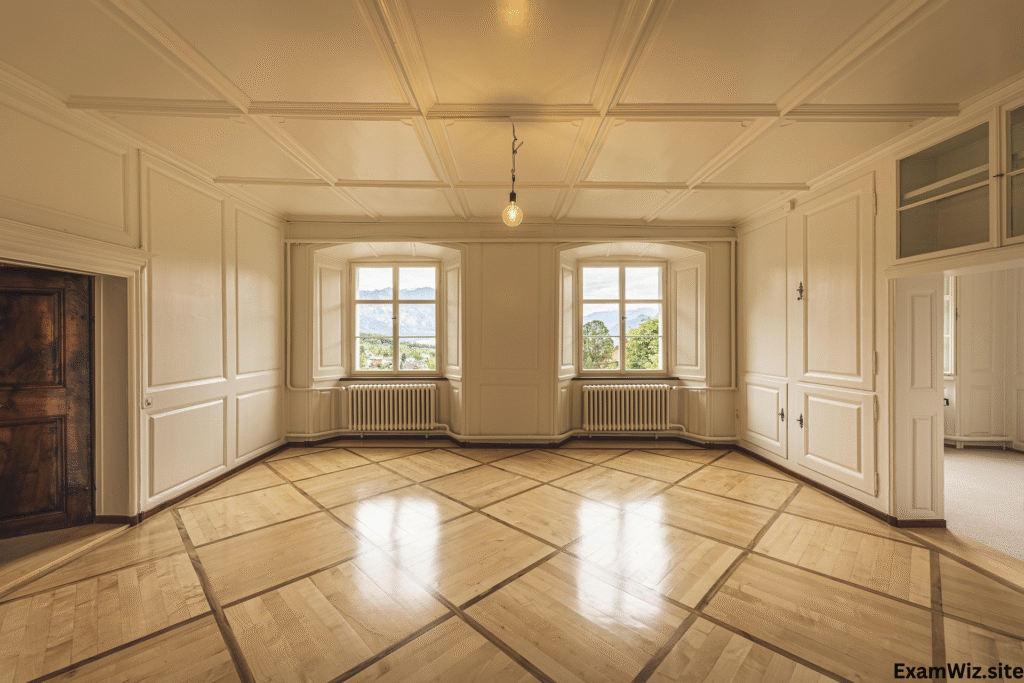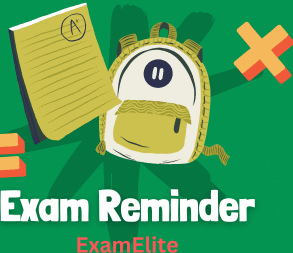Obtaining a real estate license requires passing the relevant exam. Exam prep, however, could seem insurmountable in the absence of suitable resources. Maybe you may benefit from taking a real estate practice exam. Taking practice exams is a great way to increase your probability of getting a passing score on the real examination the first time around.
This book will teach you everything about real estate practice examinations. It will go over their structure, content, benefits, and how to pick the right one for your study needs.
Can You Tell Me About a Real Estate Performance Review?
Taking a real estate practice exam is like taking the actual thing, but with a more realistic format. Its purpose is to aid aspiring real estate agents in their preparation by mimicking the format, time constraints, and questions of the real test.
Common formats for such mock exams include multiple-choice questions on topics such as general law, property rights and responsibilities, agency relationships, contracts, and the laws of various states.
You may study whenever and wherever you choose with the availability of online practice exams offered by a number of reliable preparation providers.
Real Estate Practice Exams: Why Should You Do Them?
The most important reasons to use a practice test are as follows:
Understanding the Test Structure
Practice exams are structured similarly to the actual exam. If you study up on the structure of the exam, you’ll be better prepared and calm on test day.
Find Out Where You’re Lacking
By taking mock examinations, you may find out which subjects need more study time. This paves the way for more efficient use of time and more targeted planning.
Improve Precision and Efficiency
Timed tests are often used for real estate exams. By taking practice exams, you may improve your speed and accuracy when answering questions.
Monitor Development Over Time
Most sites include score reports and explanations of answers. This feedback may help you understand your performance trends more clearly.
Maximize Memorization via Repetition
Taking many practice exams for the real estate exam will help you retain more information and review key concepts.
Can You Tell Me What a Real Estate Practice Exam Covers?
Although the real estate exam varies from state to state, most practice exams include both general information and topics unique to certain states. Common topics covered include:
Property Characteristics and Official Summaries
Familiarity with land, property rights, and methods for describing real estate.
Partnerships Between Brokers and Agencies
Rules governing disclosure, representation, and fiduciary duties.
Legal Agreements
Different kinds of agreements, elements of contracts, and rules for their enforcement.
Techniques for Valuing and Appraising Properties
Includes a wide range of activities, including research into the market and various forms of assessment.
Loans and Financing
Various mortgages, lending processes, and federal laws (including TILA and RESPA).
Real Estate Law and Ethics
Real estate laws and ethics, fair housing rules, and licensing statutes.
Laws and Policies Defined by Each State
A few examples of municipal regulations are escrow, transfer taxes, and commissions.
Framework of the Real Estate Test (Includes Practice Tests)
Most real estate practice exams are multiple-choice, much like the real thing. Typically, there are two parts to the whole test:
-
On a national level: You will learn the basics of real estate.
-
Section for the State: Here we go into the laws and rules that are unique to each state.
There are usually 100–150 questions spread out throughout each section of a real estate exam, and each section is timed separately. One example is:
-
Duration: 120 minutes; number of questions: 80
-
Duration: 60 minutes; number of questions: 40
A lot of practice exams are structured in the same way to make students feel the same way.
Finding Reliable Real Estate Practice Exams
If you want your preparation to be effective, you must use trustworthy materials. The following are examples of excellent places to study for real estate exams:
Preparation for Real Estate Examinations via Coursework
Video lectures, flashcards, interactive quizzes, and protracted tests are common components of these. Companies such as Real Estate Express, Kaplan, and The CE Shop are popular possibilities.
State License Boards
You could find example questions or services recommended by certain states.
Mobile Apps and Web-Based Services
Some websites that provide practice examinations and explanations include Mbition, Quizlet, and PrepAgent.
Course Materials and Resources
Try to find books that provide practice questions and detailed explanations. To access even more study resources, some even employ quick response (QR) codes.
Tips for Getting the Most Out of Your Real Estate Practice Exams
The real estate practice test is more than simply a collection of questions; how you use it to supplement your study materials may have a significant impact. To maximize your practice time, follow these steps:
Carry Out Timed Exams
Keep track of time to simulate actual testing conditions. Time management and focus are both improved by this.
Look Over Each Question and See Whether It’s Right or Wrong
Evaluate not only your correct but also your erroneous answers. Understand the reasoning behind the right answer’s accuracy.
Keep a Regular Study Schedule
The “Pomodoro Technique” recommends studying for 25 minutes followed by a 5-minute rest in order to maintain mental acuity.
Carry Out the Steps Again
Being consistent is key. Take a practice exam no more than twice weekly at first, and gradually increase the frequency of your sessions as you gain confidence.
Questions Draw from a Variety of Sources
To avoid rote memorizing of answers and increase exposure, use a variety of sources.
How Many Sample Exams Should I Give?
There is no exact number of practice exams needed to prepare for the real estate exam, although experts recommend taking three to five thorough exams. Scoring 85% or above on a regular basis indicates that you are likely ready for the real thing.
Extra practice may help some people, especially those who have trouble with standardized tests or who have been out of school for a long.
Common Mistakes to Prevent
-
When Relying on Just One Source: Utilize resources such as books, classes, and practice examinations.
-
To Make Sure You Don’t Skip the State Portion: Make sure you’re ready for questions on both the national and state levels.
-
Choosing Not to Understand: Learning happens both during and after the assessment process.
-
Avoid Cramming at the Last Minute: Spread out your study across many weeks to increase long-term recall.
Finally, Would You Recommend Taking a Real Estate Practice Test?
Sure thing. To help you succeed on your first attempt at getting your license, a real estate practice test is a great resource. It improves your performance, reduces anxiety, and boosts self-assurance in the days leading up to the exam.
Real estate licensing is more than just a formality; it’s a stepping stone to a successful career. Preparation is key to a successful transition to the role of licensed real estate agent.
If you want to become a more knowledgeable and ethical real estate agent, taking practice exams is a great way to increase your chances of passing the exam.
